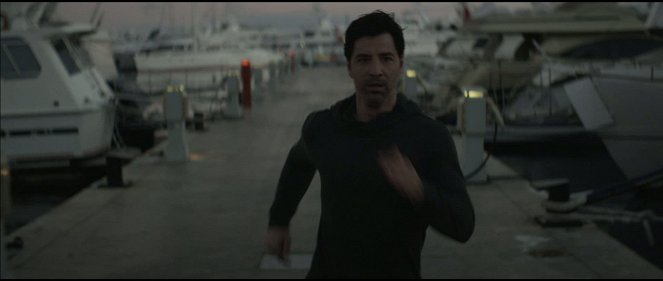Inhalte(1)
Mitten im Ägäischen Meer, beschließen sechs Männer, die auf einer Luxusjacht ein Fischerausflug machen, ein Spiel zu spielen. Das Spiel wird zum Turnier, die Männer zu mehr oder weniger noblen Rittern, die ihre Männlichkeit aneinander testen. Dinge werden gemessen und gegenübergestellt. Es werden Lieder zerfetzt, Blut getestet. Freunde werden zu Feinden − hungrigen Feinden. Aber zum Schluss der Reise, als das Spiel zu Ende ist, wird der Gewinner zum besten Mann gekürt. Er wird am kleinen Finger den Ring des Sieges tragen: eine Chevalière. (Stadtkino)
(mehr)Videos (2)
Kritiken (2)
In the context of Europe, Greek cinematography seems a lot weaker than that of other countries and this movie is no exception. A strange premise deals with a group of quite well-preserved men, for whom money doesn’t seem to be a problem. That itself invokes no emotions in me. And along with the absent humor, I have to say that Chevalier failed at everything that could have made it at least a little interesting. And I didn’t even find interesting the fact that this movie, which features barely any women, was actually made by a woman.
()
Shot in all seriousness (and cold colours), Chevalier is an absurd comedy whose numerous symmetrical compositions transform the characters into players on a notional sports field. The characters themselves determine the “sports” disciplines and the rules thereof. Like all social creatures, they infer the acceptability of their behaviour from other people. Social rules and rituals are both amplified by the laboratory-like closed environment and stripped to the marrow as something that is often completely absurd, defying “common sense”, which all of us like to reference when we need to justify some of our decisions. At the same time, absurd is becoming increasingly natural as everyone around accepts it based on an unwritten agreement. For them, competition is the dominant means of relating to the world. It is not enough for them to be who they are, as they need to prove that they are better even though – for the outside observer, which we become thanks to the distanced camera – that doesn’t amount to anything. (At the same time, engaging from a distance elicits uncertainty as to whether or not someone is watching and evaluating what they see.) ___ Their homoerotically tinged focus on physical performance, appearance, strength and condition is not motivated by the game. Emphasis on physicality is evident from the opening shots, when the men touch each other while changing clothes, working out or looking in the mirror (thanks to which we will later be able to watch both the evaluator and the object of evaluation). Perhaps due to their uncertainty with respect to their sexual identity, the risk that they may start to in any way enjoy the company of other men, they transform their stay together into the pleasure of open competition. The go all out in everything they do because of the points that they can score. Though the male-bonding theme is not crucial for the film, I enjoyed watching it as a critique of male obsession with measuring (and re-measuring) oneself against others. “Friendship” built on competition. Legitimising meaningless activities by turning them into a game. Construction of phallic shelving units for CDs. ___ I understand Chevalier, at its core, as a satirical story about man’s confrontation with himself as a member of a society based increasingly on market exchange. Anything we do has a certain value. We ourselves have a certain value (human capital) and we strive to constantly increase it in our own interest, to make a good impression and to be popular (perhaps even by willingly sharing information about our private lives). The pathological culture of “likes”, pervasive opportunism, total instrumentalisation of relationships. To the extreme. 80%
()
Galerie (11)
Photo © Stadkino Filmverleih



Werbung